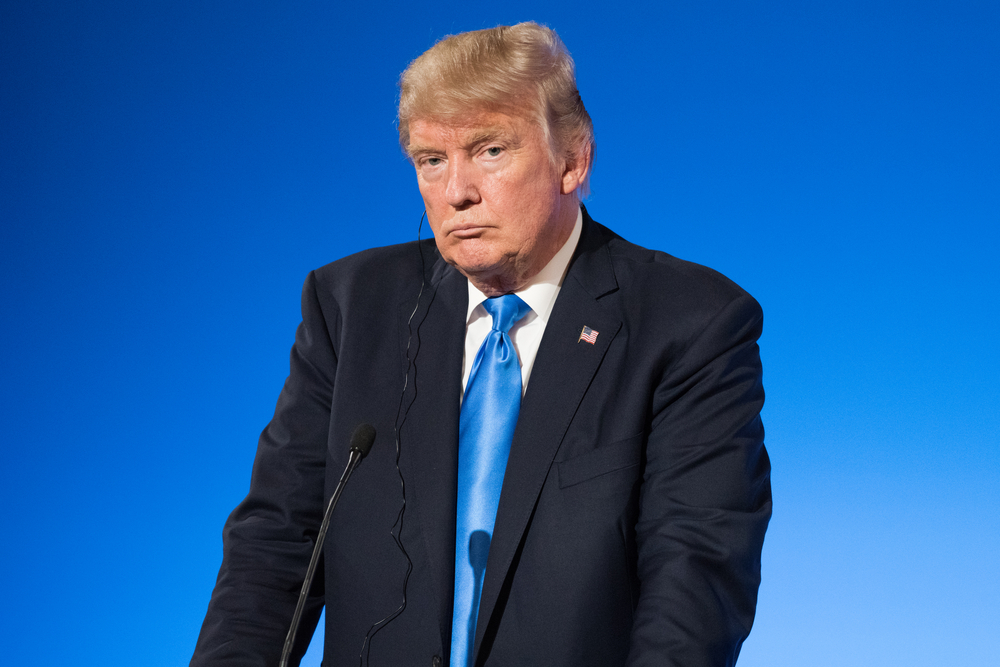American News
Reaction to Trump’s immigration offer casts doubt on a deal

FILE: President Donald Trump’s State of the Union offer of a “down-the-middle compromise” on immigration did nothing to move Republicans and Democrats closer to a deal. (Shutterstock)
WASHINGTON — President Donald Trump’s State of the Union offer of a “down-the-middle compromise” on immigration did nothing to move Republicans and Democrats closer to a deal, as Democrats accused the president of lacing his speech with racially charged remarks and Republicans dug in on their demands.
The reaction to Trump’s high-profile overture suggested both parties were settling into a protracted tug-of-war. The standoff left serious doubt whether the two parties could reach an election-year pact to protect hundreds of thousands of young immigrants from deportation, sharpen border security and take other steps to curb immigration. The two parties had not even settled on a deadline for an agreement — a bad sign in an institution that rarely acts unless under pressure.
“If the deadline is Feb. 8, we’re not going to make it,” No. 2 House Democratic leader Steny Hoyer of Maryland said Wednesday, noting a looming deadline for approving government funding to avoid another shutdown.
“It’s going to take work for us to build a consensus,” Rep. Steve Scalise, R-La., the House GOP vote counter, said in an interview Tuesday. Scalise noted that Republicans took “weeks and weeks” to craft tax legislation last year.
Earlier this month, Senate Democrats looking to pressure Republicans to reach an immigration deal forced a three-day federal shutdown. While many Democrats have little appetite to repeat that strategy, party leaders have yet to indicate if they’ll let future budget legislation move forward without an immigration accord.
The tone of the immigration debate, already testy, seemed to worsen after Trump asserted Tuesday night that “open borders have allowed drugs and gangs to pour into our most vulnerable communities” and let millions of immigrants “compete for jobs and wages against the poorest Americans.”
House Minority Leader Nancy Pelosi, D-Calif., said Wednesday that Trump used “insulting words of ignorance and prejudice.” Rep. Michelle Lujan Grisham, D-N.M., who leads the Congressional Hispanic Caucus, said the remarks were “meant to enflame tensions about immigrants” and would stir up Trump’s conservative base but damage talks.
Republicans said Democrats are not making serious offers as they bargain over Deferred Action for Childhood Arrivals, or DACA, the Obama-era program that’s shielded immigrants in the U.S. illegally who were brought here as children. Trump said last year he was ending the program, claiming executive overreach by President Barack Obama, but gave Congress until March 5 to enshrine it into law.
“If Democrats don’t figure out a way to negotiate, then the DACA program will end and that’s not an outcome I think anybody would like,” said Sen. John Cornyn of Texas, the second-ranking Senate GOP leader. “But they will be responsible for it.”
Even that March 5 date was in doubt, according to Hoyer, who’s been meeting with other leaders. He said Republicans suggested Trump could extend that deadline, though a congressional GOP aide said he was unaware of that option.
The urgency of the March 5 deadline was also blunted by a federal judge’s decision to temporarily block the end of the DACA program. As a result, U.S. immigration authorities resumed accepting requests to renew DACA permits, which give recipients permission to live and work in the country.
Trump has proposed a 10- to 12-year track to citizenship for around 1.8 million younger immigrants protected by DACA or eligible for its guarantees. That’s enraged GOP conservatives.
“The heartburn is the amnesty component,” said Rep. Mark Meadows, R-N.C., leader of the hard-right House Freedom Caucus, referring to Trump’s offer of citizenship. Meadows said that plan needs “a few adjustments that may be major” before it could pass the House.
Trump also wants $25 billion for border security, including his prized wall, despite campaign promises that Mexico would fund it. He would end a lottery used to encourage immigration from diverse countries and redistribute some of those visas to applicants with high-skilled jobs.
He would also limit relatives that immigrants could sponsor for legal U.S. status to spouses and underage children. He calls that “chain migration,” a term immigration advocates find nearly as offensive as the idea of barring them from helping parents, siblings and other relatives.
“We will not reach agreement as long as he wants to attack the very underpinning of legal immigration. My sister is not a distant relative,” said Rep. Luis Gutierrez, D-Ill., a hard-line advocate for immigration.
GOP lawmakers were also wary of changes Trump would make, such as potential curbs on visas that allow temporary agriculture or seasonal workers into the U.S.
“I favour legal immigration, I want to eliminate illegal immigration,” said Sen. Mike Rounds, R-S.D. He said Trump’s proposal was “a good first step.”
The conservative-leaning Cato Institute has called Trump’s proposals “draconian restrictions on legal immigrants” that would exclude nearly 500,000 legal immigrants annually, cutting their numbers by nearly 50 per cent.
Without a deal, Democrats risked a backlash from liberal voters furious about any failure to protect the young immigrants known as “Dreamers.” Republicans were wary of letting deportations begin in a year in which they’ll be defending Senate seats in Nevada and Arizona, swing states with high Hispanic populations.





















